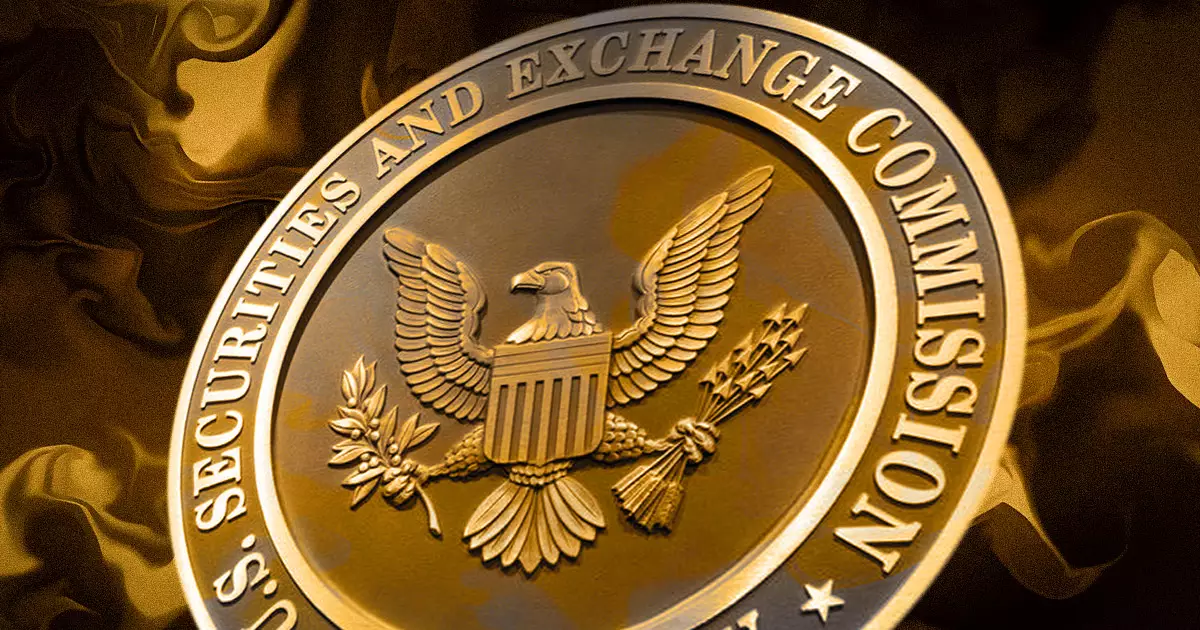U.S. Senator Cynthia Lummis has filed an amicus brief in support of Coinbase’s motion to dismiss the U.S. Securities and Exchange Commission (SEC) lawsuit. In her brief, Senator Lummis highlights the ongoing debates in Congress regarding crypto regulation and argues that it is the responsibility of Congress, not the SEC, to develop appropriate regulations for the crypto industry.
Senator Lummis brings attention to the Lummis-Gillibrand Responsible Financial Innovation Act, a bill she co-sponsored, which seeks to regulate cryptocurrencies. She emphasizes that Congress is already actively engaged in discussions on the topic of crypto regulation, and therefore, the court should dismiss the SEC’s case and defer to Congress to establish balanced regulations.
Limitations on SEC’s Power
Lummis asserts that the SEC does not have the authority, nor has Congress granted it the power, to regulate cryptocurrencies. She argues that according to the Constitution, it is Congress, not the SEC, that has the power to legislate in areas of significant economic and political importance.
While acknowledging the importance of investor protection, Senator Lummis points out that most legislative bills currently under discussion propose placing most oversight of the crypto market under the purview of another agency, rather than the SEC. She accuses the SEC of attempting to circumvent the political process and seize authority that has not been entrusted to it.
SEC’s Interpretation and Grab for Power
Lummis criticizes the SEC’s attempt to classify cryptocurrencies as “investment contracts” through a novel interpretation of the term. She argues that Congress has not authorized the SEC to redefine securities beyond what has already been established by law. According to Lummis, the SEC’s labeling of most cryptocurrencies as securities is merely an unjust attempt to expand its power and influence beyond its legal boundaries.
Limitations Imposed by Separation of Powers
The principle of separation of powers dictates that only Congress has the authority to make laws on significant national and economic matters. Senator Lummis emphasizes that Congress, not the SEC, holds the fundamental responsibility of determining the assets that fall under the SEC’s jurisdiction. She asserts that Congress is the appropriate body to establish a regulatory framework for crypto assets and that the SEC cannot infringe upon Congress’s authority.
While acknowledging that Congress may grant the SEC authority to regulate crypto assets, Senator Lummis argues that it is ultimately Congress’s decision to make, and the SEC cannot unilaterally assume that decision for itself. Through the case against Coinbase, the SEC is attempting to exert influence over the same questions that are already being debated in Congress. Lummis points out that several crypto regulation bills currently being considered by Congress recommend other agencies, not the SEC, to regulate the majority of the crypto market. Therefore, the SEC’s claim of authority over the new sector is incongruous with the ongoing legislative efforts.
Senator Cynthia Lummis staunchly supports Coinbase’s motion to dismiss the SEC lawsuit and urges the court to defer to Congress for the establishment of appropriate regulations for the crypto industry. She asserts the SEC’s lack of authority and attempts to expand its power beyond what has been entrusted to it by law. By emphasizing the importance of Congress’s role in legislating on significant matters and the limitations imposed by the separation of powers, Lummis argues that the SEC cannot circumvent the political process and seize authority for itself. As ongoing debates in Congress regarding crypto regulation progress, Senator Lummis contends that the SEC’s claim of authority over the sector is out of step with the prevailing legislative efforts.


Leave a Reply